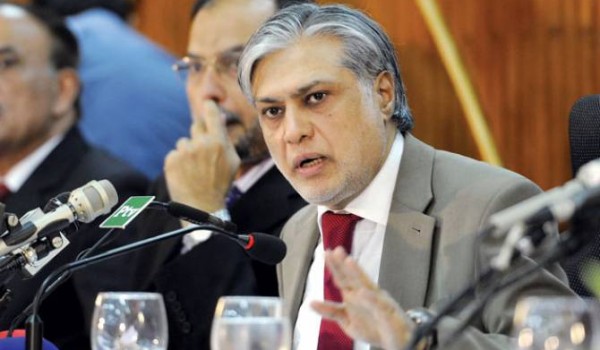–At least 43 SROs issued over the last year
–Senator says issuance of SROs was favourite part of Dar’s job
ISLAMABAD: Taking a U-turn for its early claims of curbing the statutory regulatory orders (SROs) practice and its subsequent commitment to the International Monetary Fund in this regard, the government has issued at least 133 SROs over the period of last four years.
The number of SROs has drastically increased during the past 11 months as Federal Board of Revenue (FBR) issued 43 SROs regarding taxes, regulatory duties etc.
The visiting IMF team was very critical of the latest SRO of imposing regulatory duty on imports of selected items by the FBR. As per the data with FBR, 11, 28, 37, 14 and 43 SROs were issued in 2013 (June to December), 2014, 2015, 2016 and 2017 (January to December 7), respectively.
SROs are one of the characteristically unique features of Pakistan’s economy. They are tools through which the executive, FBR, decides the fate of taxation in the country, bypassing the need for parliament.
The issuance of SROs, legal experts believe, is also a violation of Article 77 read with Article 162 of the Constitution of Pakistan. Article 77 categorically says that “no tax shall be levied for the purposes of the Federation except by or under the authority of the Act of Parliament”.
Besides, the Supreme Court of Pakistan in its judgment, Messers Mustafa Impex, Karachi v Government of Pakistan (2016) 114 Tax 241 (S.C Pak.), held that “neither a secretary, nor minister and nor the prime minister are the federal government and the exercise, or purported exercise, of a statutory power exercisable by the Federal Government by any of them, especially in relation to fiscal matters, is constitutionally invalid and a nullity in the eyes of the law. Similarly, budgetary expenditure or discretionary governmental expenditure can only be authorised by the Federal Government, ie the cabinet, and not the prime minister on his own.”
However, sources claim, the present government had been violating the constitution by levying taxes and varying tax rates through SROs. The ministry of finance through the Finance Act 2017, even inserted provisions in various tax codes aimed at nullifying the judgment of the Supreme Court. The Act also unconstitutionally empowered FBR to enhance the rate of sales tax with the approval of “Minister In-charge”.
“The government had made tall claims of ending the culture of issuing SROs and make every amends in taxation would be made through the parliament and as per the constitution. But, from 2013 to 2017 the government kept issuing SROs in violation of rule and even without carrying about IMF’s directions,” said Senator Mohsin Aziz while talking Pakistan Today.
He further said that the issuance of SROs had been a favourite job of Ishaq Dar.
However, an official source at FBR claimed that the minister in charge (Finance Minister) was empowered by the Finance Bill 2017 to issue SROs when required, thus the issuance of regulatory orders was not in violation of the Constitution.
FBR spokesperson Dr Muhammad Iqbal said that there were SROs unapproved by cabinet but the process of approving from cabinet was being ensured after the decision of Supreme Court. In reply to query, he said that the recently issued SRO, related to Regulatory Duty on imports, was issued after approval from the ECC. “This is a very complicated issue and various SROs issued by the FBR have been challenged in the court,” he said.
Senator Saleem Mandviwalla said though the FBR has been given the authority to issue some SROs, related to Sales Tax etc, but the way the board has issued SROs is wrong. He said the finance act has already been challenged in the court. 32 senators from the PPP, PTI, PML-Q, ANP, MQM, Jamaat-e-Islami, and an independent lawmaker challenged the act in the Islamabad High Court (IHC).
According to experts, the SRO phenomenon creates a lack of transparency as changes in taxes are not routed through the system of parliamentary oversight. The scope and impact of these SROs across the economy can be gauged by the fact that more than 90 per cent of the total 7,016 tariff lines of Pakistan customs tariffs are covered under one or more SROs.
The government, when it was going for loan programme to the IMF, had committed to do away with the SRO regime. The government had prepared a calendar by the end of May 2014 to eliminate the vast majority of SROs and convert the remainder into regular legislation. The government had also committed to the IMF that it would approve legislation by the end of December 2015 to permanently prohibit the practice of issuing SROs. However the same could not be implemented even after the conclusion of the IMF programme.




